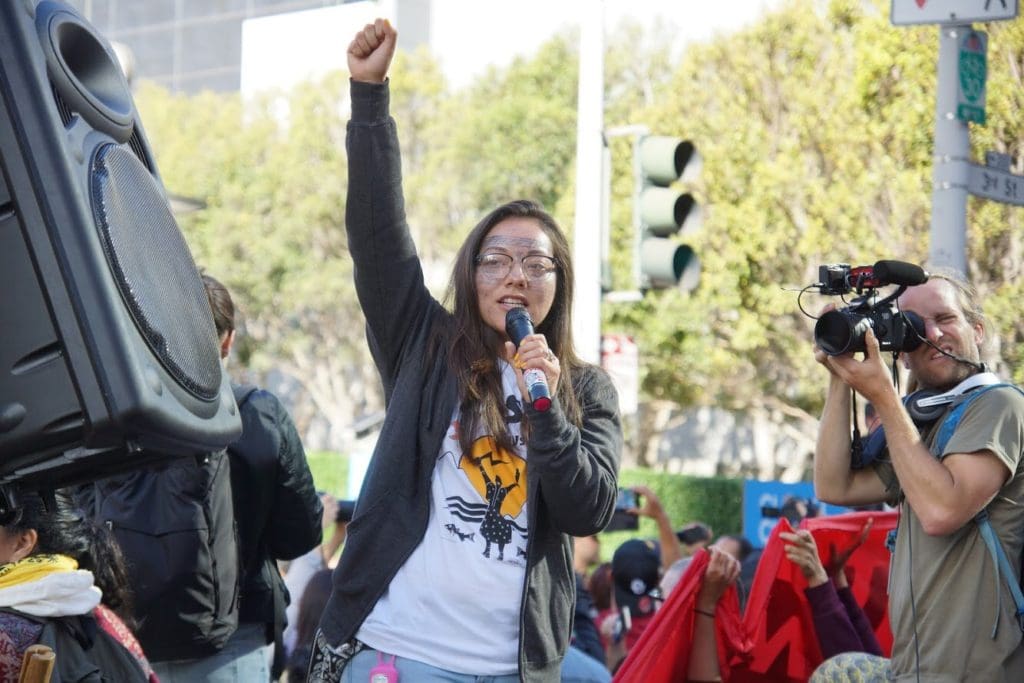
09 Feb Difficult Times Demand Passionate Activism

By Isabella Zizi | Photo by Denny Khamphanthong
With all that is going on — the United Nations Intergovernmental Panel on Climate Change’s apocalyptic report on climate change, teachers resorting to striking to get better pay and student support, and the longest government shutdown in U.S. history with the threat of another on the way — what can one person do to make a change?
As a millennial, it is almost a given that the life choices we make around our living spaces, work habits, dietary restrictions and even transportation are influenced by past historical struggles that we don’t want to repeat. Moments and movements such as the Great Depression, American Indian Movement, Civil Rights Movement, the Dust Bowl, and Occupy didn’t happen that long ago, and these issues still occur. We can’t just let history repeat itself.
Data from the 2017 Millennial Impact Report shows that millennials are reshaping what it means to be an activist, as just over half identify as activists.
This is evident in the 21 youth who have sued the U.S. government for not addressing climate change sooner. There are also the Parkland students who took the lead on gun control after a shooting at their school last February. These young people are trying to address two issues that demand urgency to save lives.
Activism has many layers to it, and there is a place for just about anyone and everyone, whether on the frontlines, taking over the streets and pressuring public officials to pass resolutions that benefit the people, or being a visual and graphic “artivist.”
We are at that point where we need all the help we can get to enact meaningful change for everyone on Earth. But how do you know what to do? Where do you start?
Even though I grew up in an activist family, my first big moment voicing my concern did not come easy: my heart pounding through my chest, the room getting hotter, my voice shaky, and my palms sweaty. This was when I knew I had found my path.
Here are five tips for young people looking to get started on their own path to activism.
Find your passion and what drives you. What gets you most excited or emotionally invested? Climate change, social justice, food sovereignty, health, education, animal rights, gun violence, sex trafficking, or maybe dismantling the patriarchy? Once you find a specific target, start to read more about it. Learn about historical moments, positive and negative. This will help when having debates or discussions with those who are unfamiliar with it.
Find what role best suits your comfort zone. Are you great at public speaking? Do you write? What about digital skills? Are you an artist of many talents who can draw or sing? Do you like to organize and act as a role model? Are you a risk-taker, more on the rebellious side? If you answered yes to any of those questions, attend an event, action, or panel discussion. It’s a good way to meet with organizers and share your interest in getting involved. They might ask you to join their group, volunteer at their next event, or possibly take on a campaign job.
Don’t be afraid to ask for help. Look for support groups or similar movements in your neighborhood or community and build relationships. If there are elders you can connect with, ask them to mentor you. This will help you get familiar with faces in the movement and can even get you into high places, such as attending invite-only conferences, speaking in the media and more. The more connections you build, the more others will start to recognize you and potentially appreciate and acknowledge your hard work. This is especially important for people of color. The support I was able to receive from Indigenous elders/grandmothers helped align me with my cultural roots, as well as understand certain actions and other points of views.
Practice self-care. Activism can keep your mind racing nonstop, or your adrenaline can peak, causing your body to crash. This causes the burnout that many activists face too often, myself included. When burnout happens, your body is telling you to slow down. Do not hesitate or question it. Remember, there are others who can help you complete a task. You are not alone. Self-care is not a sign of weakness — it is a sign of supporting your health and your well-being. As young activists, we tend to carry so much weight from those who are older than us. We are tasked with keeping the torch lit, especially since we have so much energy. But that energy is not limitless, so we need to take care of ourselves mentally, physically, emotionally and spiritually.
Be proud of the accomplishments and challenges you have overcome. No matter how many obstacles you have to jump over to do one simple task, make sure you never give up on yourself and the choices you make. You need a true calling for activism. Don’t do it for fame or social media likes. Do it because you genuinely care and want to make a difference. Remember that every action taken doesn’t go unnoticed, and there are millions of others who share your values and concerns who are simultaneously taking a step forward in their own communities.






No Comments